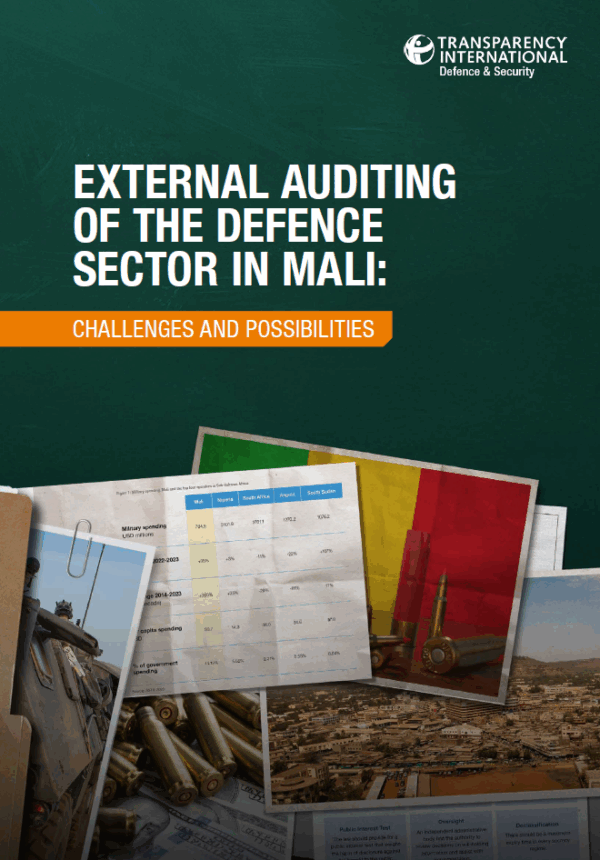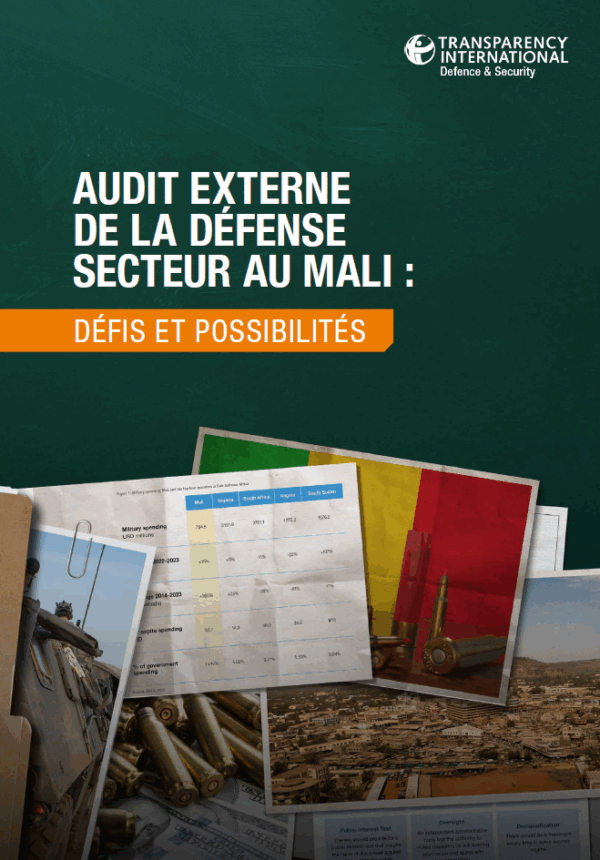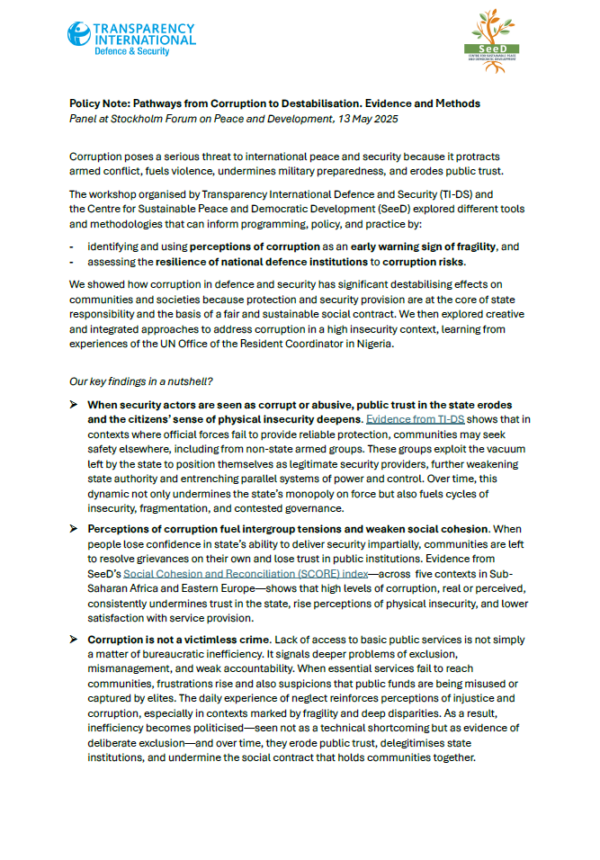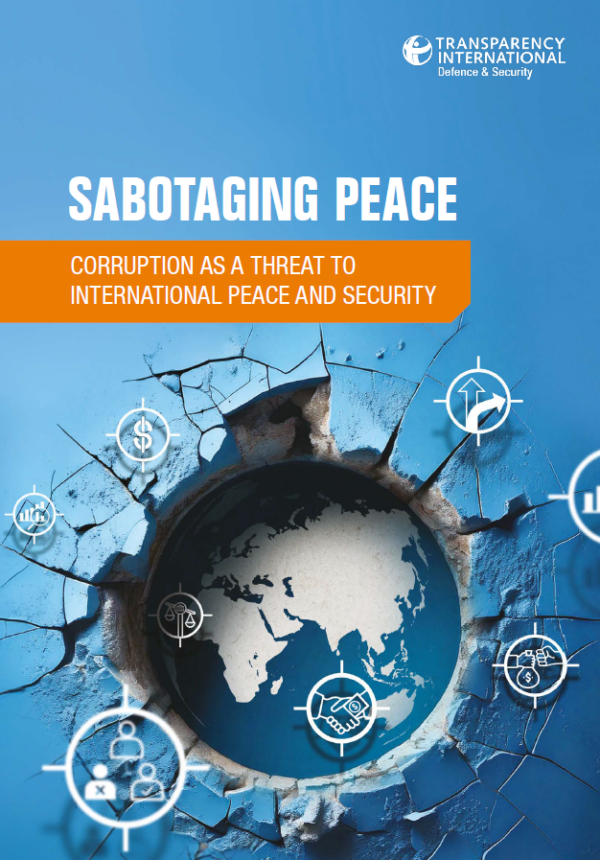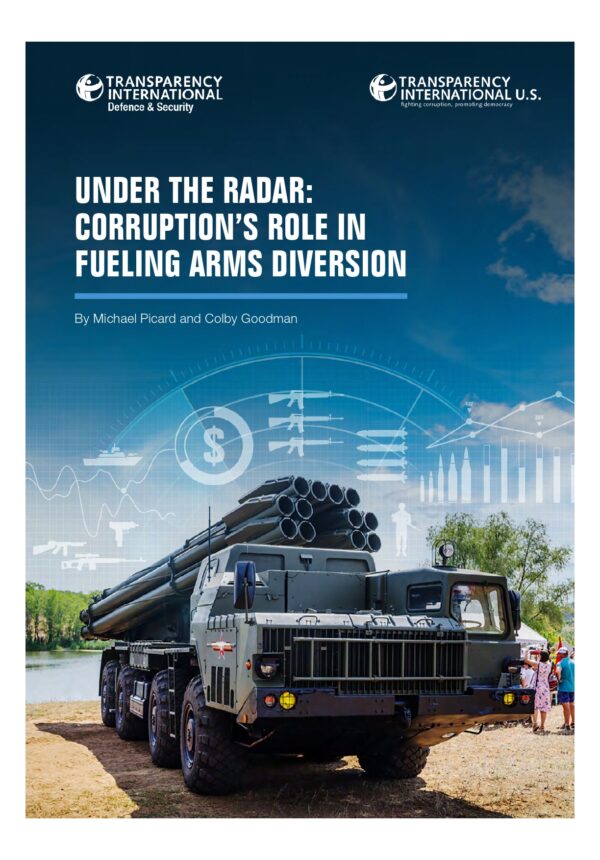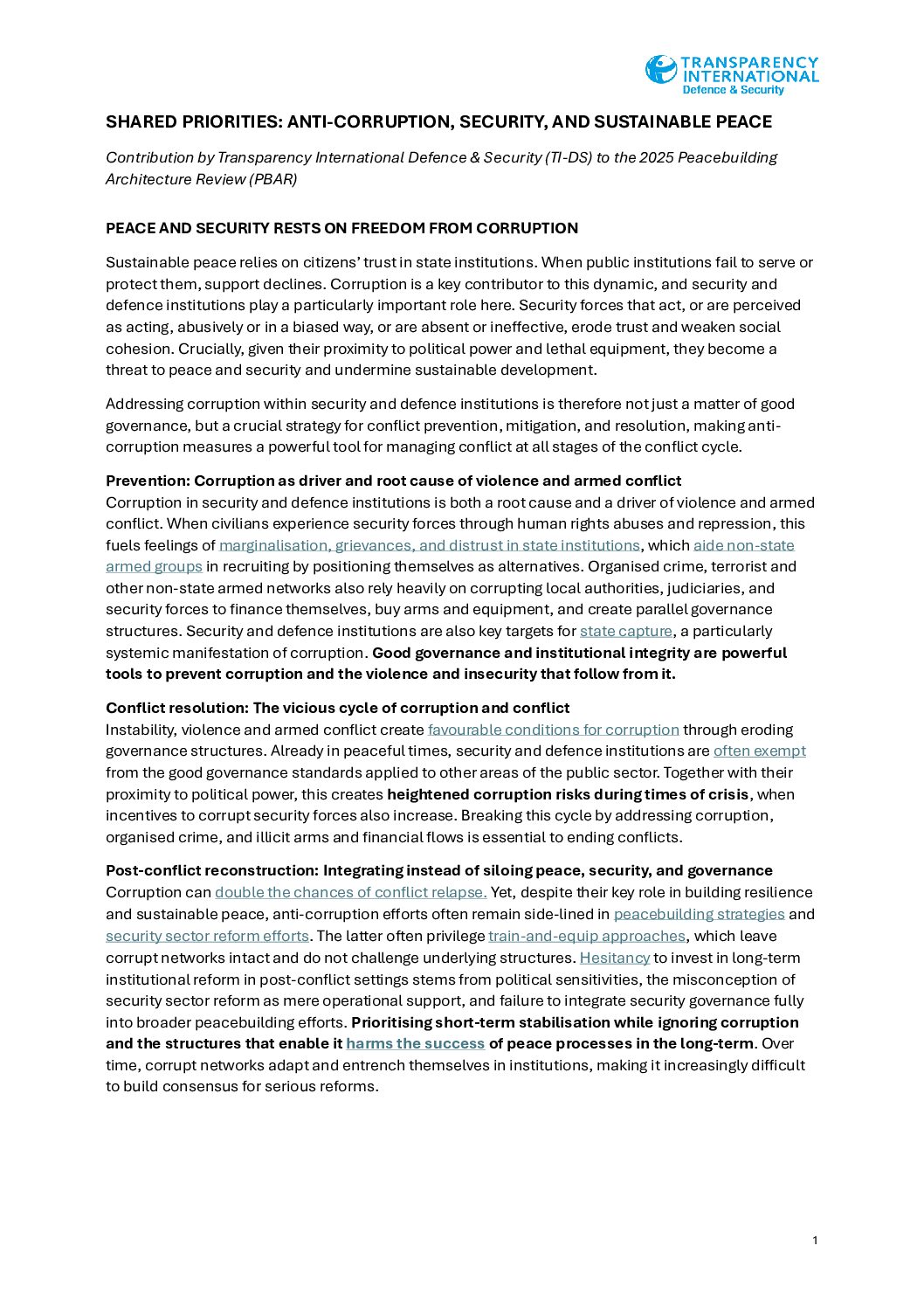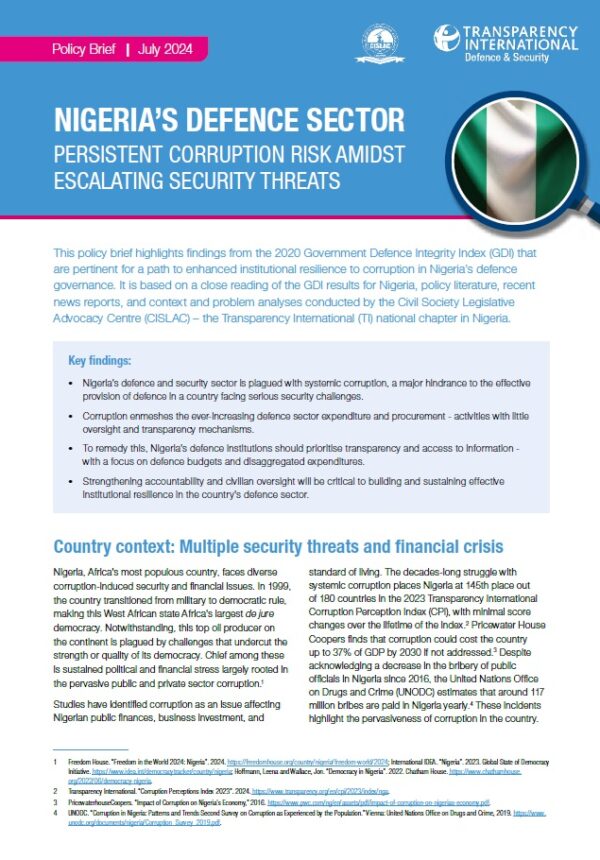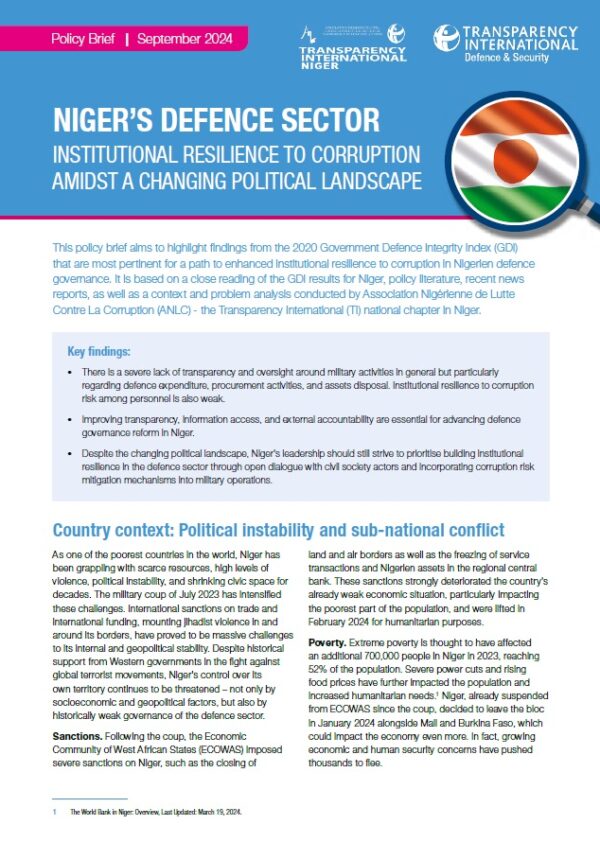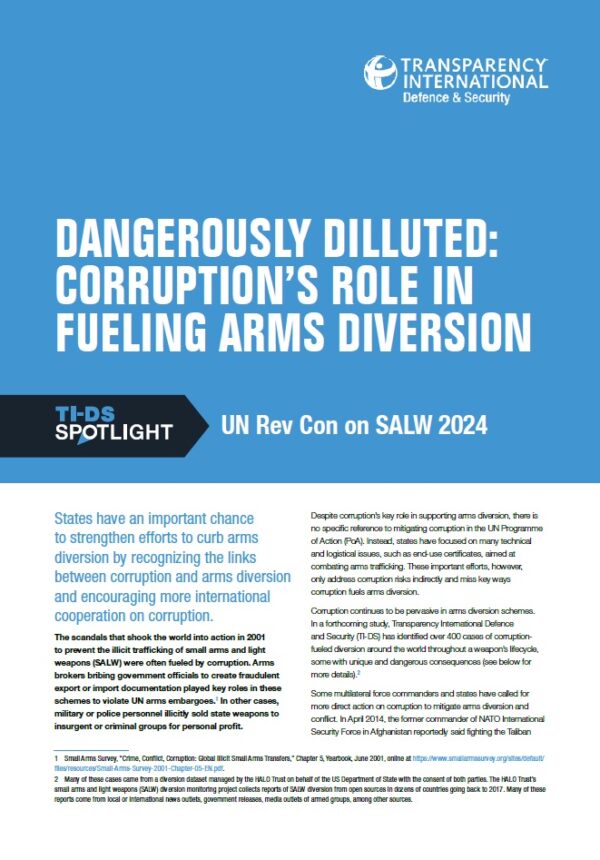Dangerously Diluted: Corruption’s role in fueling arms diversion
The scandals that shook the world into action in 2001 to prevent the illicit trafficking of small arms and light weapons (SALW) were often fueled by corruption. Arms brokers bribing government officials to create fraudulent export or import documentation played key roles in these schemes to violate UN arms embargoes.
In other cases, military or police personnel illicitly sold state weapons to insurgent or criminal groups for personal profit.
Several states are increasingly implementing new policies and approaches to better assess and mitigate corruption risks in arms
transfers and stockpile management. These laudable approaches, however, are still in their infant stages. There is also a lack of international coordination and cooperation on the ways in which corruption fuels arms diversion. It’s time for states to elevate their efforts to assess and mitigate corruption’s role in arms diversion by strengthening national and international action and cooperation.
